+33 (0)1 40 41 96 42
This 3-minute video summarizes a walk we propose in one of Paris’s most beautiful districts: Le Marais. The walk lasts from half a day to a full day, depending on the points of interest you select from our proposal.
We leave from the Relais du Louvre for the Porte du Marais, 950 meters from the hotel. Please follow us.
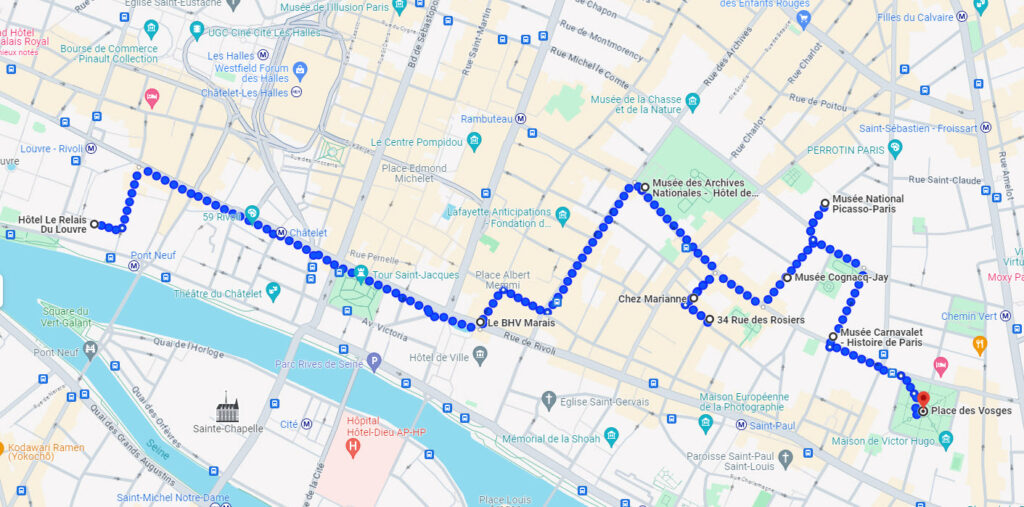
Construction of this Renaissance palace was ordered by François I in 1529.
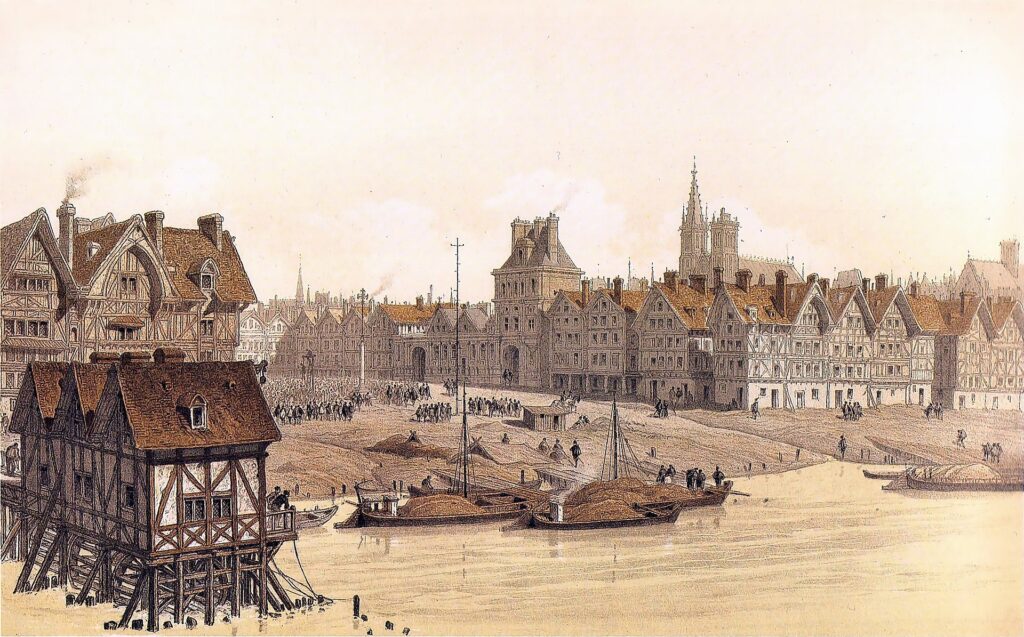
Since its construction in 1533, the building has been enlarged, burnt down and partially rebuilt.
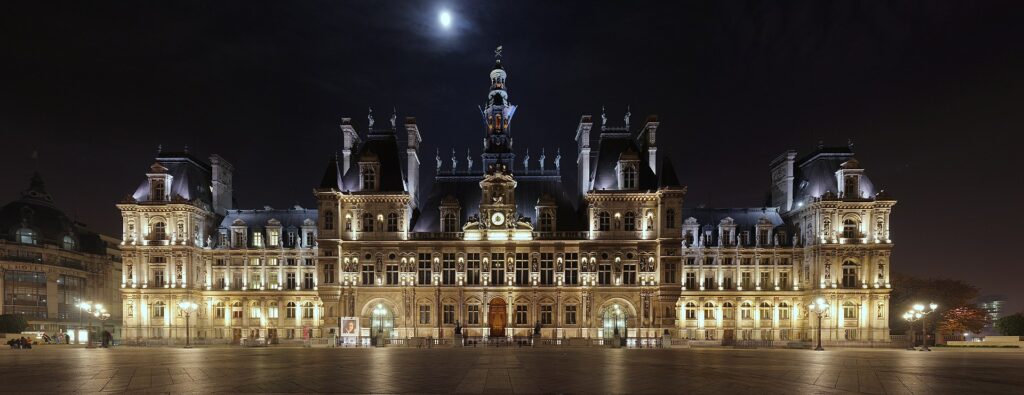
The BHV (Bazar de l’hôtel de ville), founded in 1856, is a veritable historical temple of Parisian commerce. It is particularly popular with Parisians, who prefer it to other department stores. Offering an authentically Parisian shopping experience, the BHV combines tradition and modernity with a unique selection of products.
Read our article : https://www.relaisdulouvre.com/en/department-store-bhv-near-relsi-du-louvre/
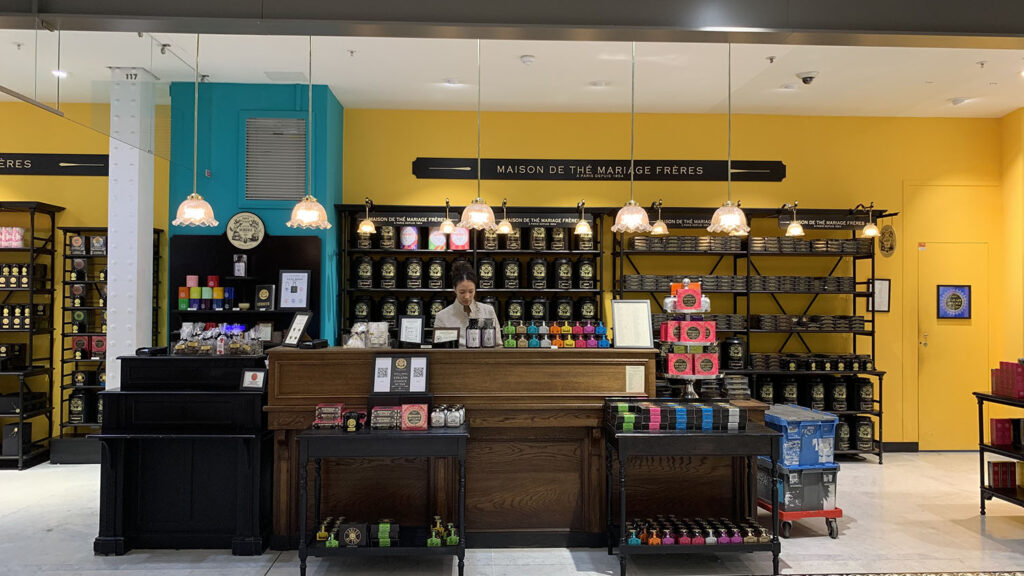
Rue des Archives is a busy and active street in the heart of the Marais district. The Marais was a hotbed of gay culture in the 80s and 90s, teeming with cafés and bars emblematic of this community. Today, although their numbers have dwindled, there are still a few “gay-friendly” cafés that perpetuate this heritage.
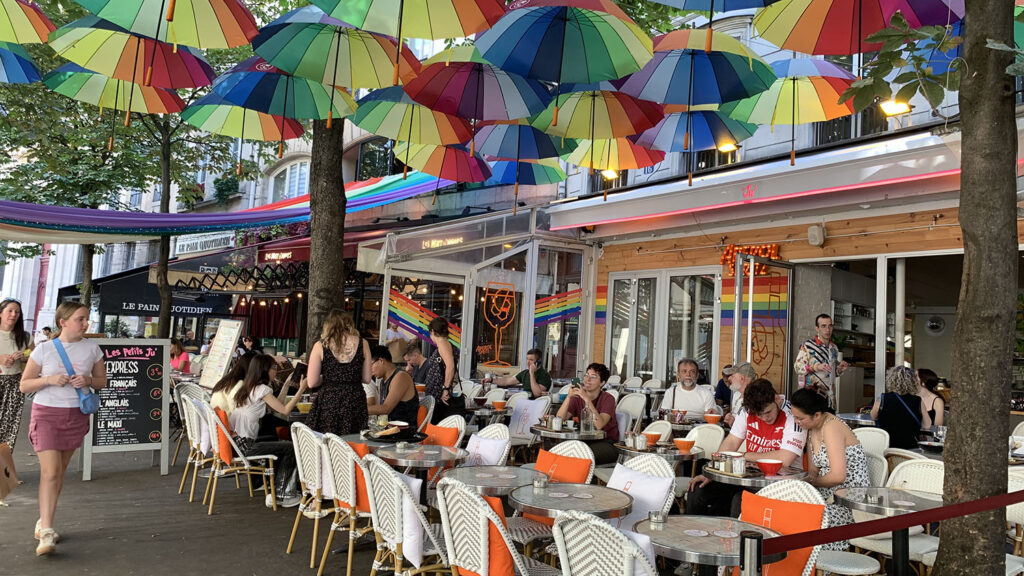
Stop off at the Cloitre des Billettes. The Billettes church was built in the late 13th century, and the adjacent cloister is the only one in Paris dating from the Middle Ages. It is occasionally open to the public for exhibitions, the dates of which are not always announced in advance.
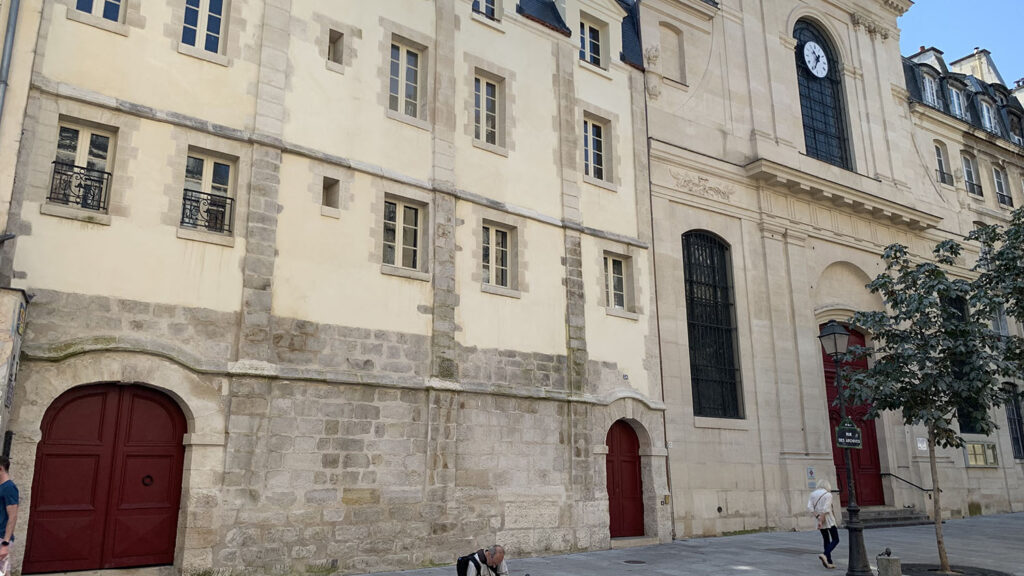
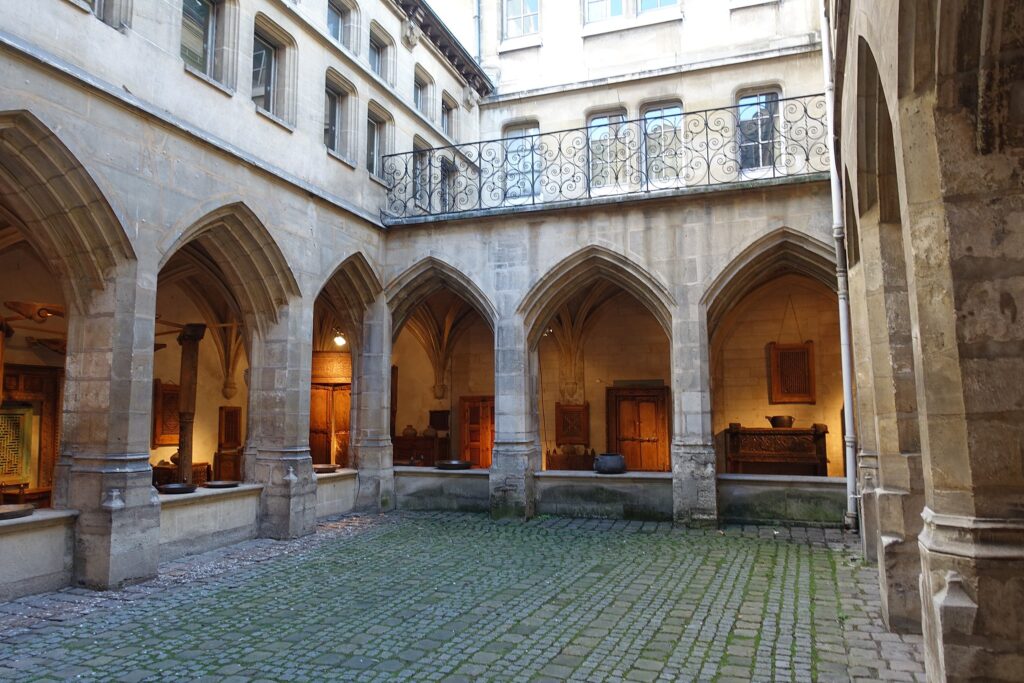
The National Archives, housed in the Hôtel de Soubise and the Hôtel de Rohan, are home to a significant historical and administrative collection for France, although the majority of documents were transferred in the 1970s.
The museum, which is free to enter, offers visitors a sumptuous setting in which to discover documents that help them understand the history and workings of the French state over the centuries.
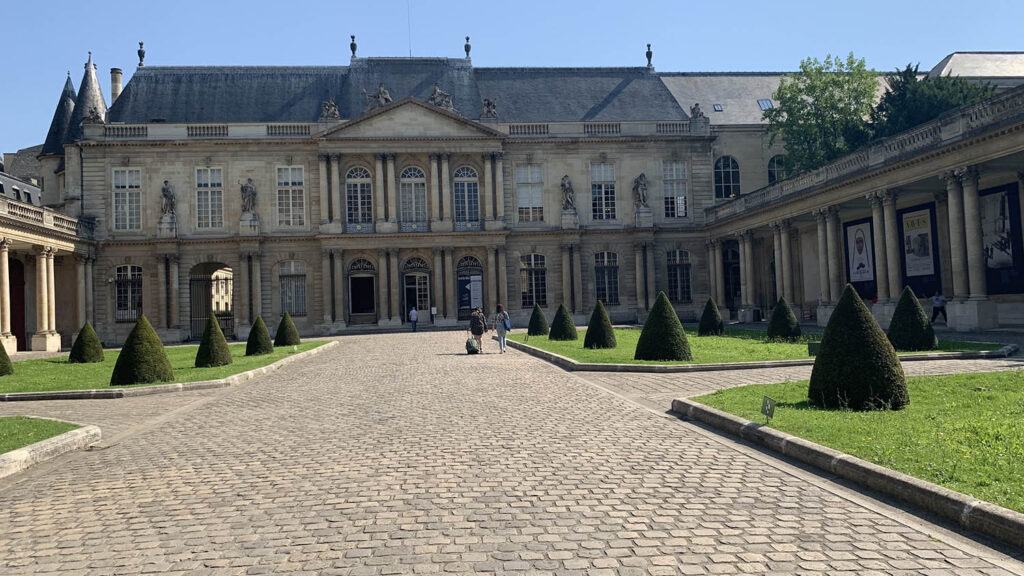
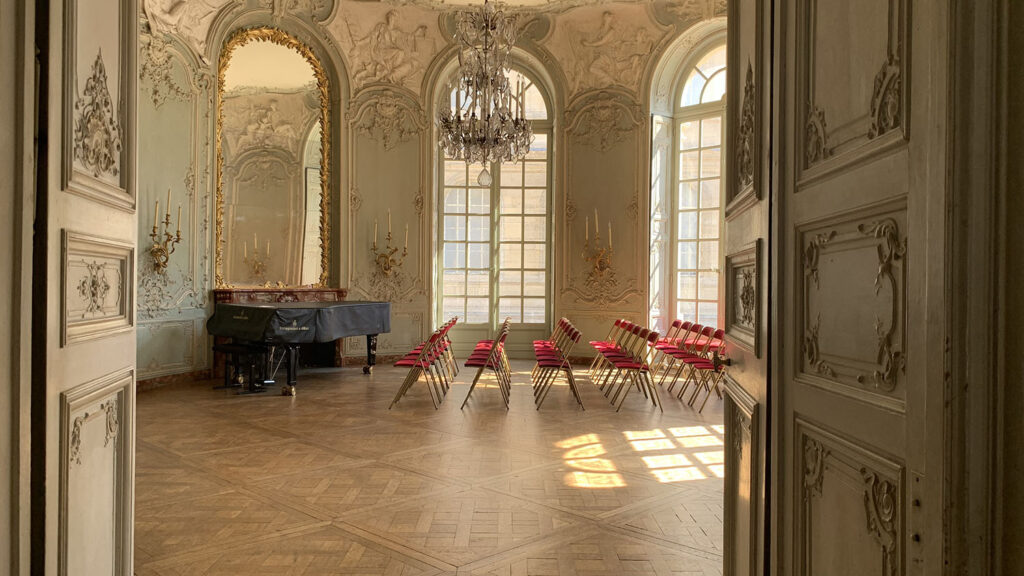
Archives Nationales
60 Rue des Francs Bourgeois
https://www.archives-nationales.culture.gouv.fr
Rue des Rosiers is marked by a long-standing Jewish presence, followed by strong immigration between the late 19th and early 20th centuries. This community, comprising both Ashkenazi and Sephardic Jews, helped shape the neighborhood’s history and culture. Stop off at one of the many mezze and falafel establishments, which are particularly popular.
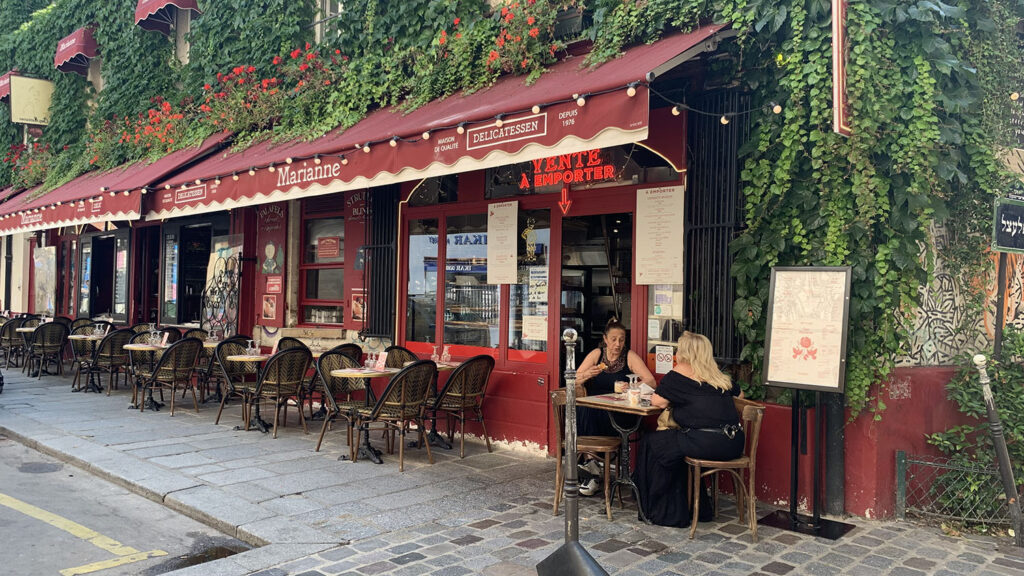
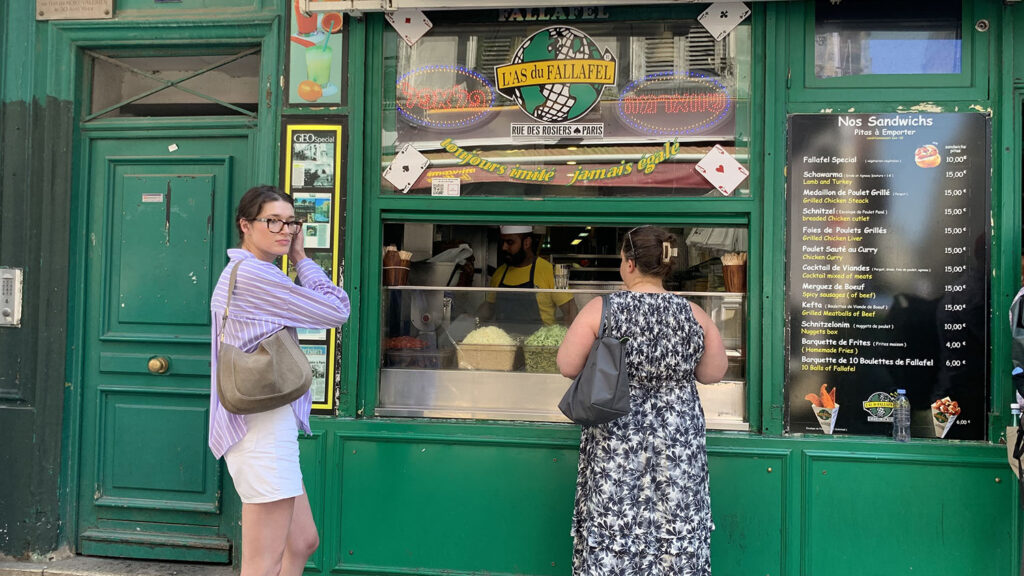
Ernest Cognacq and his wife Marie-Louise Jay, founders of the department store “La Samaritaine”, bequeathed their collection of 18th-century art, built up between 1895 and 1925, to the City of Paris. The museum is housed in the fully restored Hôtel de Donon.
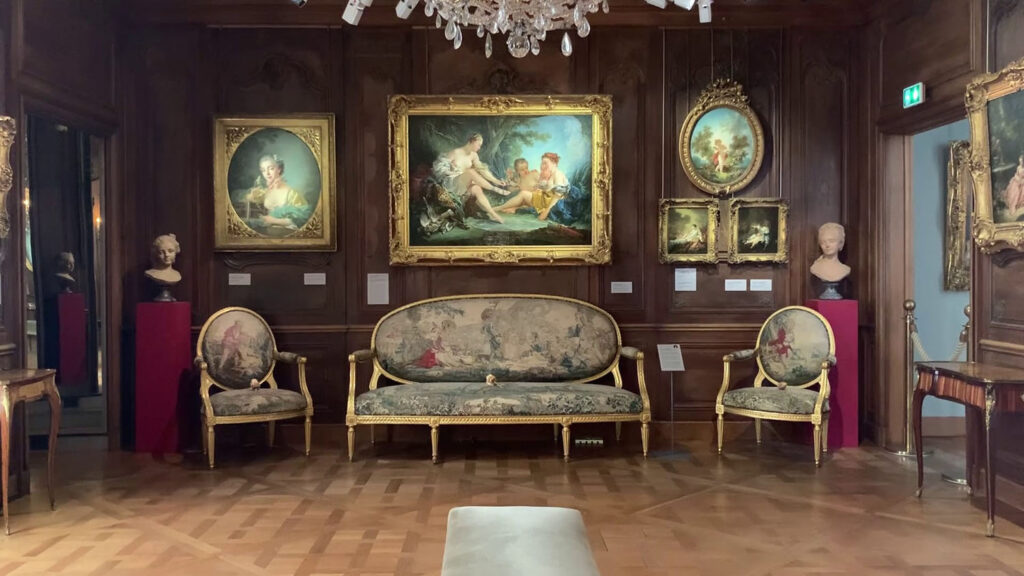
Musée Cognac Jay
8 Rue Elzevir, 75003 Paris
https://www.museecognacqjay.paris.fr
We mentioned this emblematic confectionery in a previous article. We highly recommend a visit to taste the famous Méert waffles. General de Gaulle, Marcel Proust, Joséphine de Beauharnais, and many others, were avid followers of Méert products.
Read our article : https://www.relaisdulouvre.com/gaufre-confiserie-meert/
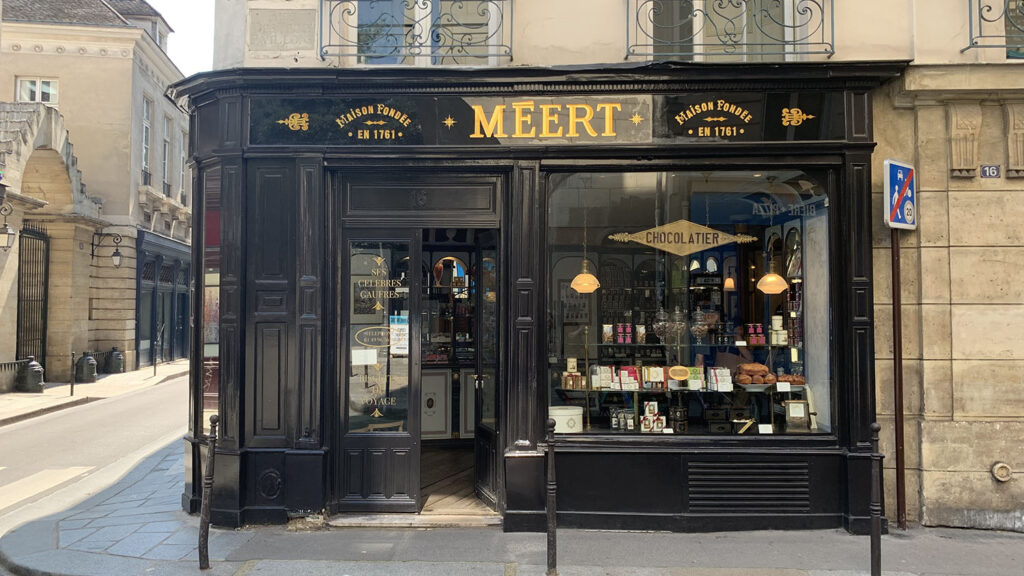
Méert
3 rue Jacques Callot – 75006 Paris
https://www.meert.fr
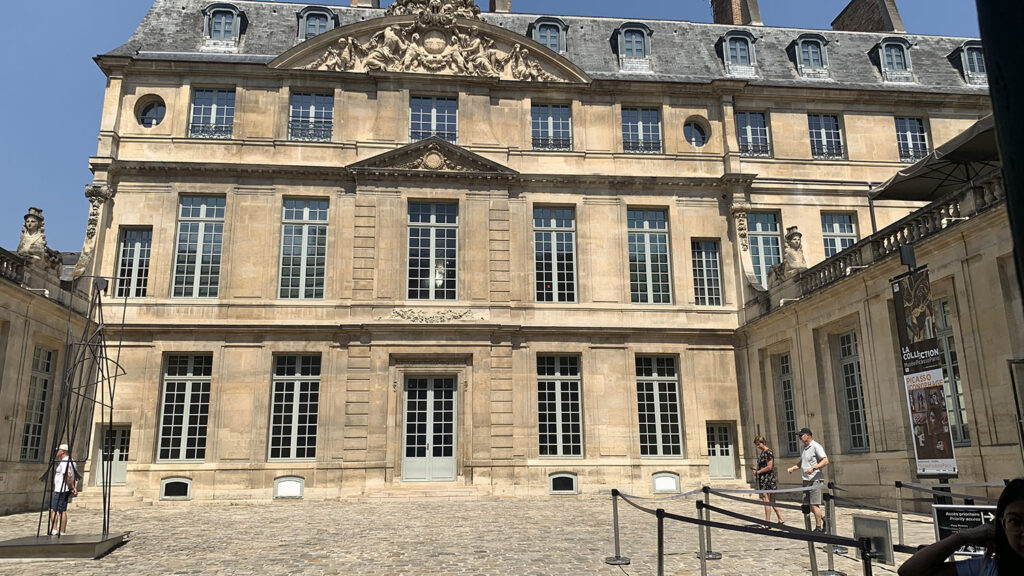
Housed in the Hôtel Salé, one of the finest in the Marais district, the collection is home to one of the world’s most important collections of works by Pablo Picasso. It holds some 5,000 works of art, including paintings, sculptures, drawings, ceramics and prints, spanning the entire career of the Spanish artist.
Musée Picasso
5 Rue de Thorigny, 75003 Paris
https://www.museepicassoparis.fr/fr
It’s one of our favorite museums in Paris, and one of the capital’s most beautiful places. The museum, dedicated to the history of Paris, is vast and truly fascinating. Admission is free, it’s designed for the whole family, and you can spend a whole afternoon there if you take advantage of the café-restaurant, which is quite affordable.
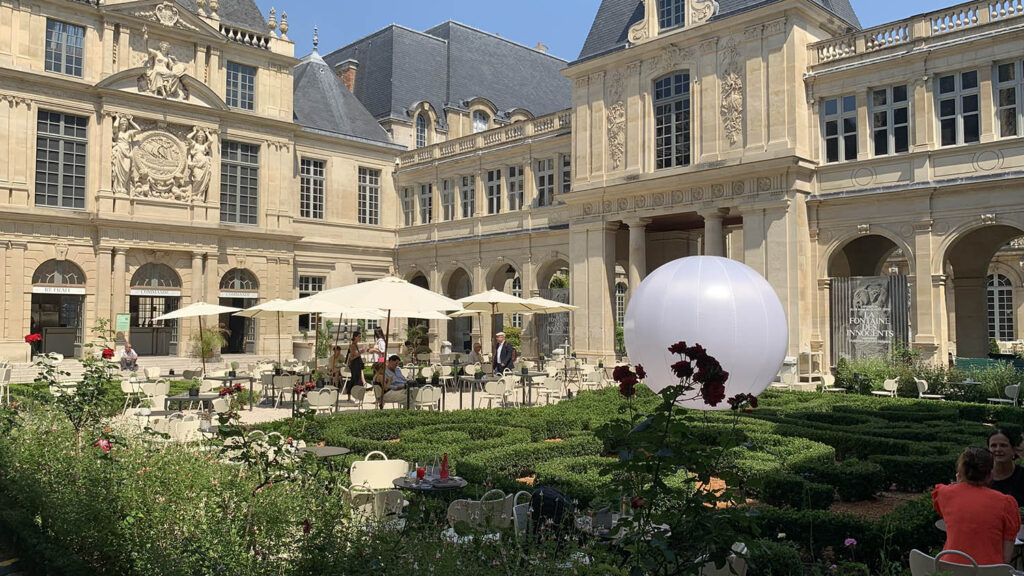
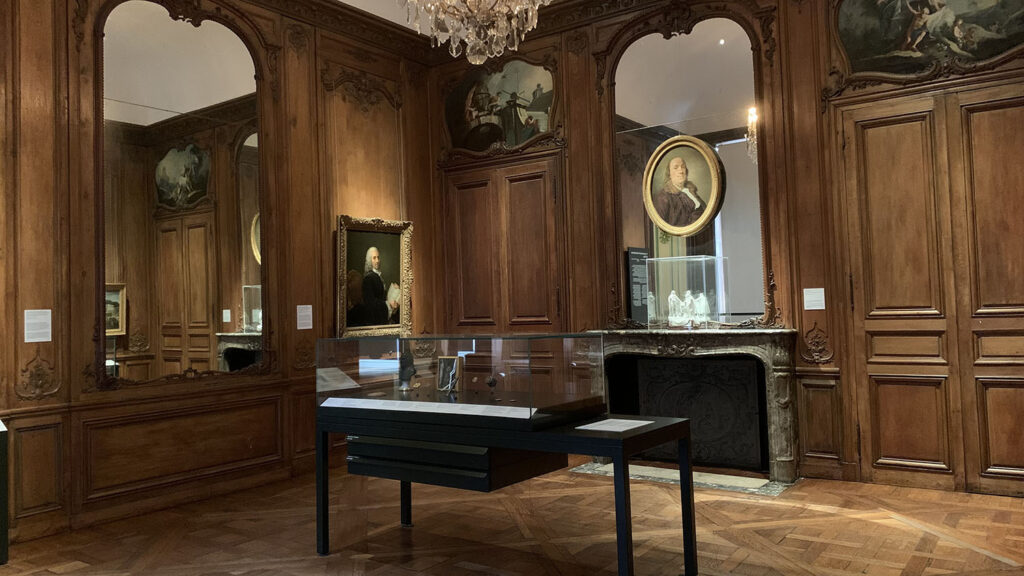
Musée Carnavalet
23 rue de Sévigné – 75003 Paris
https://www.carnavalet.paris.fr
This ancient street owes its name to a 14th-century almshouse for tax-exempt bourgeois. This street, full of chic shops, leads to the famous Place des Vosges.
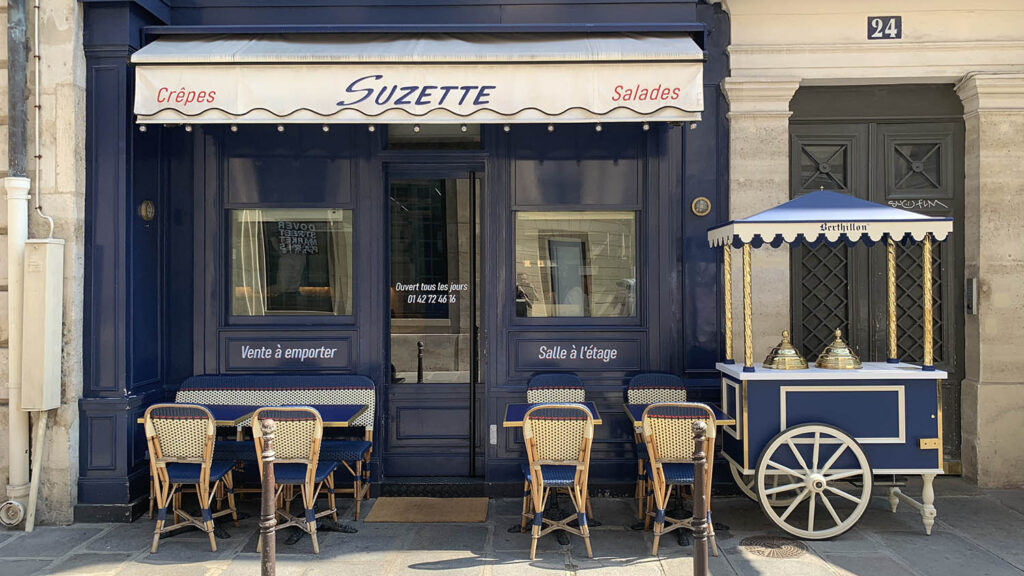
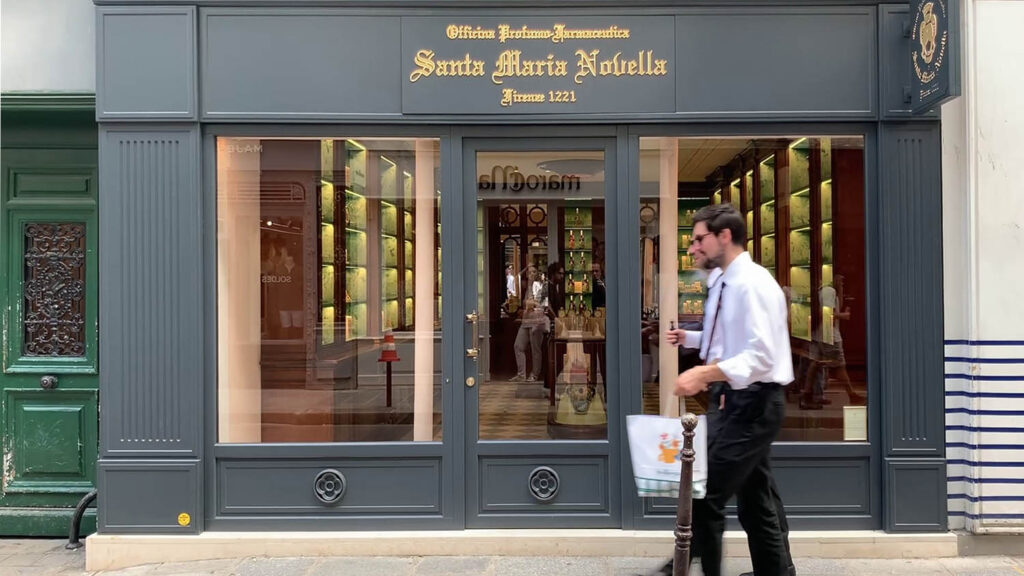
There’s so much to say about this square, the oldest in Paris and one of the most beautiful in Europe. Construction of the “Place Royale” began in 1605, during the reign of Henri IV.
We haven’t yet visited Victor Hugo’s apartment, where the writer lived from 1832 to 1848. Come at lunchtime, or as soon as it opens at 10:00 am, as it’s a popular place to visit. Writer and playwright Alphonse Daudet, Cardinal de Richelieu and the Marquise de Sévigné also lived at Place des Vosges.
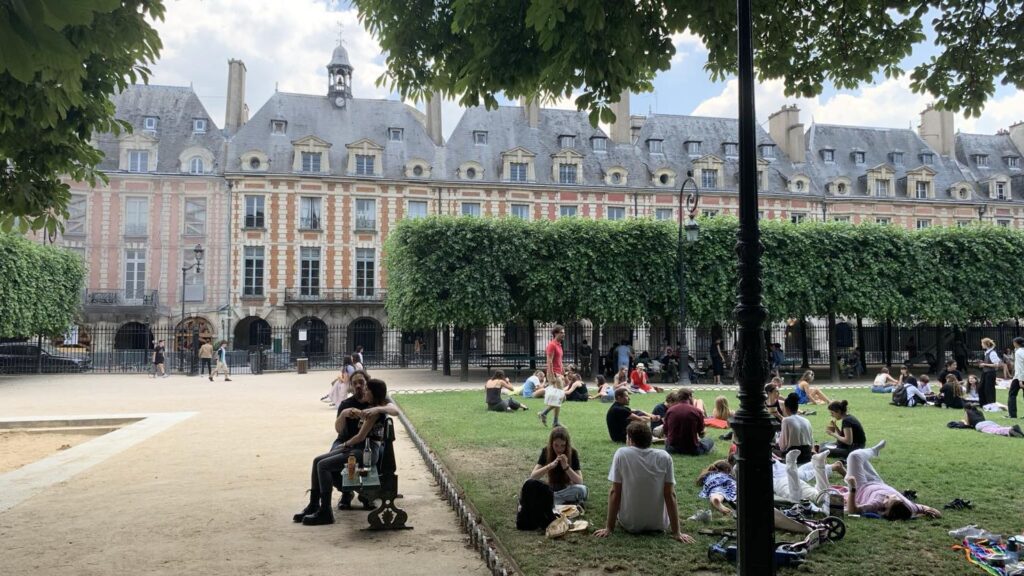
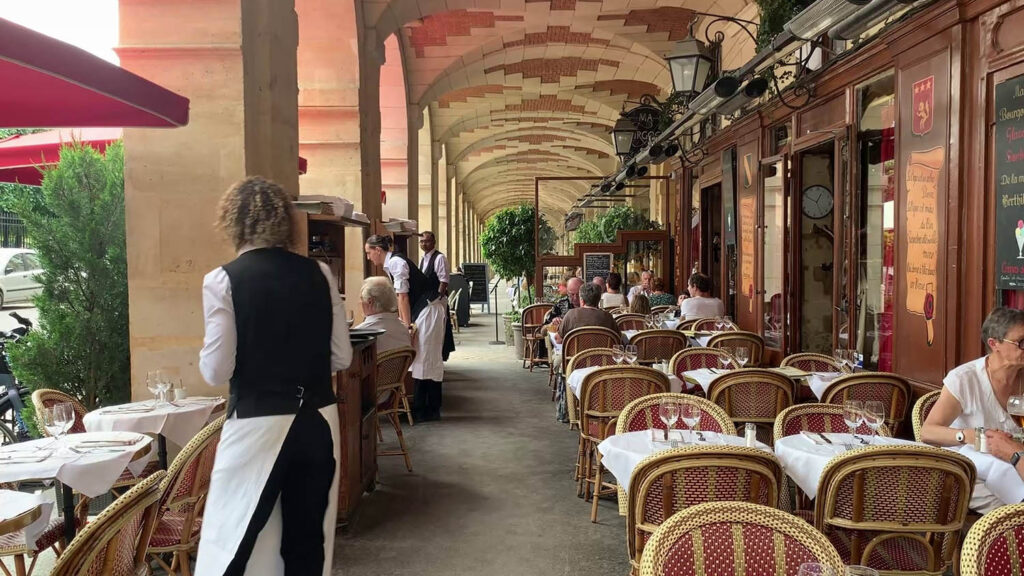
Maison de Victor Hugo
6, place des Vosges – 75004 Paris
https://www.maisonsvictorhugo.paris.fr/paris/musee/visitez-lappartement-de-victor-hugo-aujourdhui
Alone, as a couple, with family or friends, whether you’re passionate about art, history or simply looking for a peaceful stroll, the Marais will seduce you and offer you your most beautiful travel memories.

19, rue des Prêtres-Saint-Germain-l'Auxerrois
75001 Paris
+33 (0)1 40 41 96 42